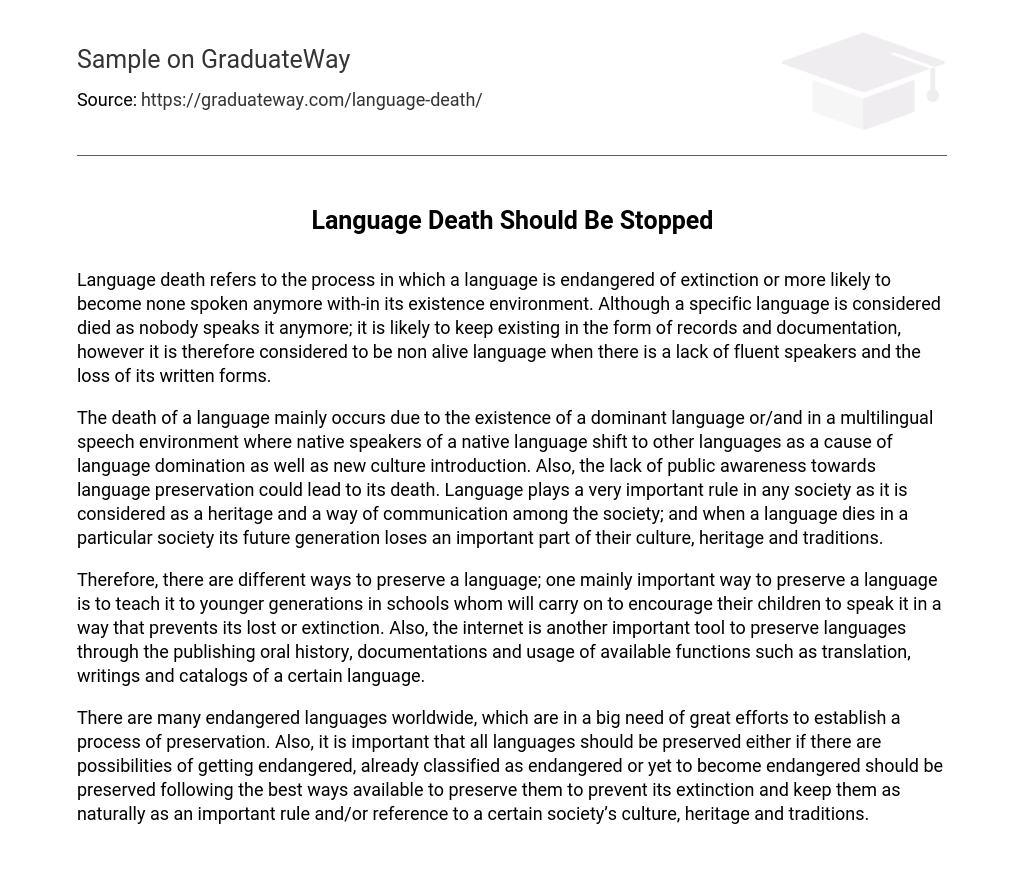Language death is the process by which a language becomes endangered of extinction or unlikely to be spoken anymore within its environment. Even if no one speaks a particular language anymore, it may still exist in the form of records and documentation. However, if there is a lack of fluent speakers and the loss of its written forms, it is considered a non-living language.
The death of a language typically occurs when there is a dominant language or in a multilingual environment where native speakers shift to other languages due to language domination and the introduction of new cultures. Additionally, if there is no public awareness regarding the preservation of the language, it can also contribute to its disappearance. Language holds significant importance in any society as it represents cultural heritage and serves as a means of communication within the community. When a language becomes extinct within a specific society, future generations lose a crucial aspect of their culture, heritage, and traditions.
Preserving a language can be achieved in multiple ways, including educating it to younger generations in schools. This ensures the language is passed down to future generations and prevents its decline or disappearance. Another valuable resource for language preservation is the internet, which allows for the dissemination of oral history, documentation, translation, writing, and cataloging specific languages.
There is a pressing need for significant efforts to preserve the numerous endangered languages across the world. It is crucial that all languages, whether already classified as endangered, at risk of becoming endangered, or not yet endangered, should be preserved using the most effective methods available. This preservation is crucial to prevent their extinction and maintain their natural importance as a cultural, heritage, and traditional reference for a particular society.





